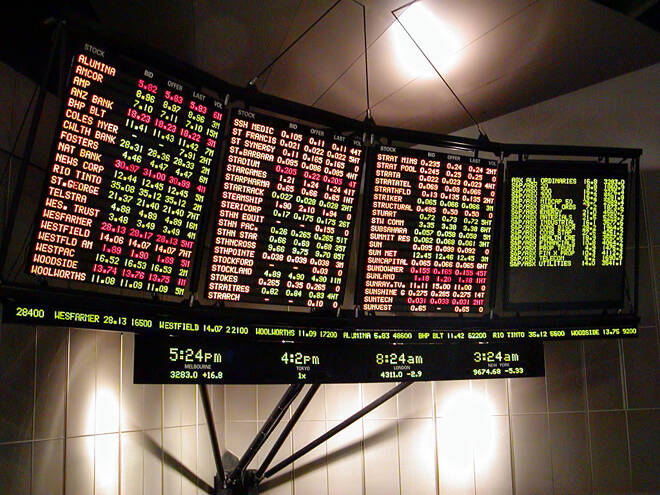Advertisement
Advertisement
Euro Keeps Rising Amid Stocks and Oil Uncertainty
By:
The euro has risen this morning to buying just under $1.13 this morning, as European stock markets are suffering a downturn. This is despite the gains
The euro has risen this morning to buying just under $1.13 this morning, as European stock markets are suffering a downturn.
This is despite the gains that has been made by major European stock markets this morning.
Before 9AM GMT, The FTSE 100 is up 22 points, and was at 5,654.75. Germany’s Dax was up 0.48% at 8,921.85, and the French benchmark Cac is up 0.36% at 4,011.88 points.
The Athens stock market has also made gains this morning, rising by 1.44%, and is now placed at 457.30.
Greece’s stocks have caused huge concern after falling to a 26 year low on February 8, with banks losing 25% of their value on a single day.
Deutsche Bank can breathe a sight of relief this morning, as their shares have picked up by 11%, after yesterday‘s heavy losses where their stocks fell by 5%, following major concerns about their balance sheets.
According to Nasdaq, the price of crude oil continue to decline, today a barrel costs of $30.78, from dipping below £30.50 yesterday.
Euro Falls to Pound, but UK Suffers Poor Production Results
The pound has strengthened against the euro this morning, with the euro now buying £0.77 this morning, from peaking just under £0.782 in the early hours GMT.
Conditions between the two currencies may change throughout the day, as official figures in the UK have revealed that total production output has declined by 0.5%, in the final quarter of last year.
The fall in production activity was far greater than what was expected, as a drop of 0.2% was predicted.
Mining and quarrying were the most influential downward indicators, as they fell by 2.3%, reflecting the bearish commodities market.
In contrast, the manufacturing sector remained stable between the third and fourth quarters.
For the whole of last year, the figures unveiled more positive news, as compared to 2014, production increased by 1%.
Out of the four main sectors of the economy, manufacturing was the only one to reported a decrease in output, falling by 0.2%.
The year on year comparison between December last year, and December 2014, showed that production fell at 0.4%.
Once again manufacturing was the weakest link in the major sectors of the UK economy, as it regressed by 1.7%.
Manufacturing output decreased by 0.2% in December 2015 compared with November.
The largest contribution to the decrease came from the wood, paper products & printing industries, which tumbled by 2.1%.
In a telling statistic, production and manufacturing were 9.8% and 6.5% respectively below their figures reached in the first quarter of 2008, before the financial crash.
France Report Manufacturing Slide
France’s manufacturing sector also experiences a setback in the current climate, as in December the sector’s output was reduced by 0.8%.
The figure was a reversal from November, where the sector had increased production by 0.6%.
This was in contrast to the rise of 0.4% in the final quarter of last year, compared to the third quarter. Output surged in the manufacture of coke and refined petroleum products by 6.8%.
Whereas output decreased in mining and quarrying, energy, water supply, waste management by 0.6%, food and beverages by 0.9%, transport equipment by 0.7%, and electrical goods by 0.6%.
About the Author
Peter Tabernerauthor
Advertisement
